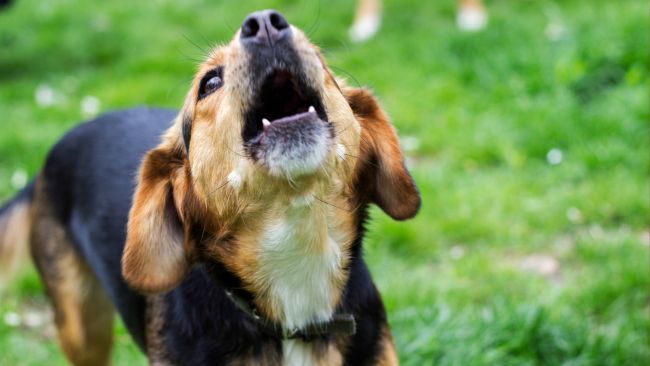Puppies are adorable, but they do have plenty of strange habits, and licking their own butts is definitely one of them. This odd ritual won’t be as hard to understand when you realize that young dogs sometimes suffer from health problems related to impacted anal glands and parasites; if Fido spends a lot of time licking his own bottom, you can be fairly sure that he needs medical attention. The act of licking his or her own butt is your puppy’s attempt to soothe irritation in this sensitive area, and it never provides relief for very long. You must step in and take your little pet to the veterinarian to ensure that the underlying cause of this unsanitary behaviour is addressed.
While most licking activity is related to tapeworms or anal gland issues, there may also be more serious reasons why your pup licks his or her own butt. For example, tumors may be causing unpleasant side effects in the anal area. Since tumors are serious health problems, they will hopefully be “ruled out” by a vet, who will then diagnose another cause of puppy “butt licking” and inject medication or prescribe antibiotics. Topical creams may also be used to soothe irritation while medicine takes effect. Without a vet, it will be pretty hard to get a handle on this common puppy behaviour. Until the root cause is addressed, and any infection or impacted glands are healed, your puppy will probably continue to rub his or her butt all over your carpet. In fact, leaving this health issue untreated will likely result in even more soreness, redness and swelling in your pup’s tender anal area.
Impacted Anal Glands Are a Common Trigger for Puppy Butt Licking
In a nutshell, pups don’t usually lick their own butts unless they’re dealing with pain, itching and swelling in that part of their bodies. One of the most common triggers for this behaviour is impacted anal glands. These glands exist to produce a lubricant that helps puppies to pass their stools more easily. Anal glands also contain a scent that is unique to each dog. If you’ve seen dog sniffing each other’s butts, you should know that each canine is checking out the other dog’s special fragrance and committing it to memory. Puppies and adult dogs release a smidgen of anal gland fluid when they are around other canines; because their senses of smell are so acute, they will notice this expressed fluid’s scent even when you don’t.
As you can see, the anal gland serves a dual purpose; however, it doesn’t always work properly. Health problems start when germs build up in glands that aren’t expressing normally; infection spreads, causing swelling and pain. Sometimes, abscesses grow and then burst, triggering infection in other parts of the body. Issues with unhealthy anal glands will cause young canines discomfort, and pups will drag their butts around in a futile attempt to soothe the symptoms that they are experiencing. If you’ve also noticed your puppy licking his butt, emitting a foul odor from this part of his or her body, and displaying an inflamed anal opening, your canine pal is likely dealing with a pretty nasty anal gland issue.
Only a veterinarian can drain the anal glands to get them back in proper working order; if you suspect your puppy is scooting because of this health issue, you should take Fido to the “pet doctor” as soon as possible.
Fleas and Tapeworms May Cause this Common Puppy Problem
Fleas carry the larvae of tape worms, so many puppies that have fleas will also have worms living in their bodies. Typically, these pale worms will be found in feces, and they may resemble cooked white rice. Tapeworms may cause plenty of irritation to your pet’s anus, and they are another common reason why puppies “scoot their butts” on your rugs. The scientific names for the different species of puppy worms are Dipylidium caninum,Taenia species, Echinococcus granulosus, E. multiocularis, Diphyllobothrium latum, and Spirometra mansonoides. Along with itching and irritation that causes butt scooting, your puppy may also have a tender, swollen belly, and he or she may lose weight despite no changes in his or her diet.
Since puppies must grow properly during their first weeks and months of life, it’s important to address tapeworm and flea issues at a veterinarian’s office or clinic. De-worming tablets and other remedies may be prescribed to tackle the problem; once these medicines start to work, there will probably be less butt scooting around your home. De-worming tablets are also sold at pet stores, but these won’t have the same efficacy as prescription brands. You puppy deserves the best medicine to cure his or her worm issues. Once you’ve got the situation under control, make a point of following a regimen to keep your pup as clear of fleas as possible; this will reduce the risk of another tapeworm infection. Worms are often natural part of most canine’s lives, and they must be dealt with to ensure good health.
With this information, you’ll have the expertise that you need to help your puppy feel better and to stop all the butt scooting that’s being going on in your home. Be sure to give your beloved pup plenty of affection during his or her treatment and aftercare.





.jpg)
0 Komentar